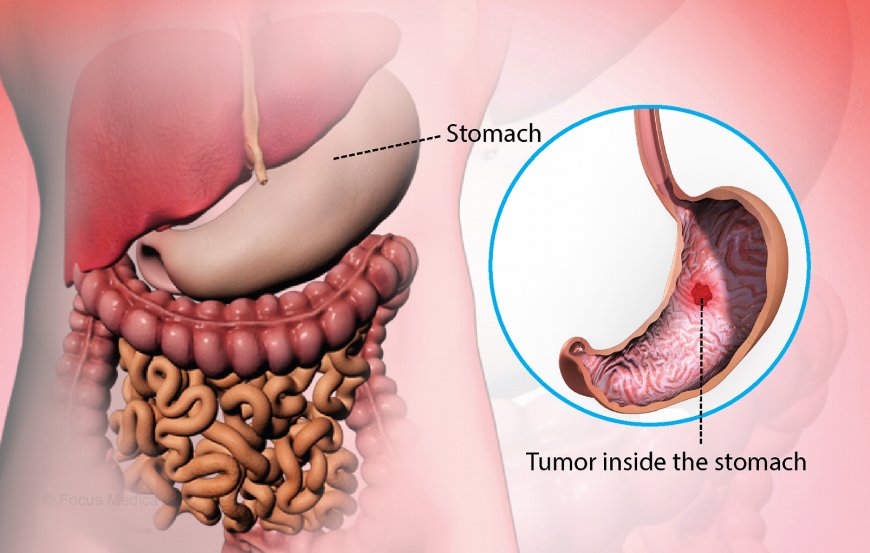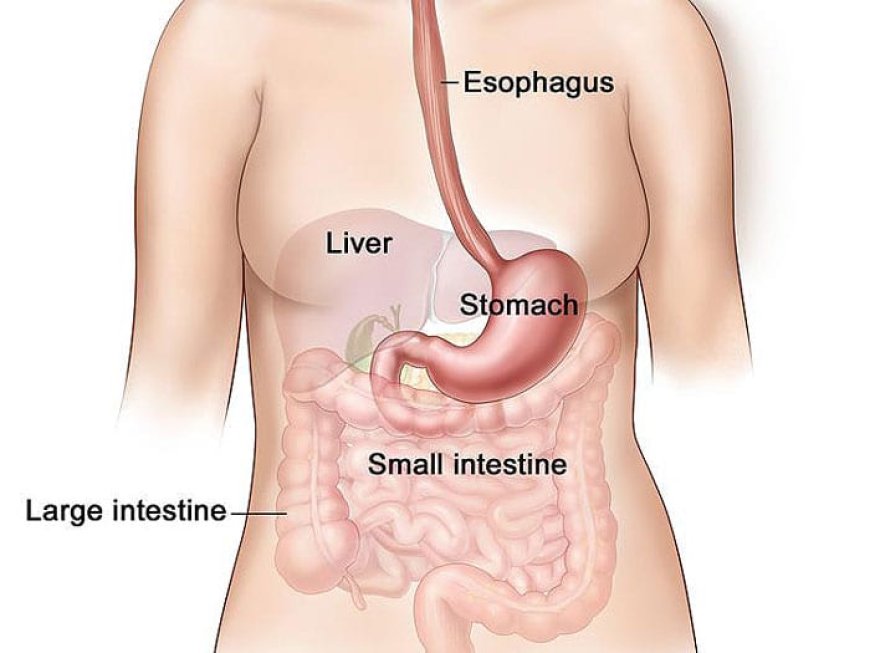'Understanding Stomach Cancer: Causes, Symptoms, and Treatment Options'
Stomach cancer, also known as gastric cancer, is a type of cancer that develops in the cells lining the stomach. It is the fifth most common cancer worldwide and the third leading cause of cancer-related deaths. This type of cancer is often hard to detect in its early stages, which makes it more challenging to treat. In this article, we will discuss what stomach cancer is, its causes, symptoms, and treatment options. We will also provide some tips on how to prevent stomach cancer and the importance of regular screenings. By educating ourselves about stomach cancer, we can raise awareness and potentially save lives.
Stomach cancer, also known as gastric cancer, is a type of cancer that starts in the lining of the stomach. It is the fifth most common cancer worldwide and the third leading cause of cancer-related deaths. Stomach cancer is more prevalent in men and older adults, with the average age of diagnosis being 68 years old. While the incidence of stomach cancer has been declining globally, it remains a significant health concern.
Causes and Risk Factors
the exact cause of stomach cancer is not fully understood, but several factors are known to increase the risk of developing it. These include:
1. Helicobacter pylori infection: This bacterium is responsible for causing most stomach ulcers and is also a significant risk factor for stomach cancer.
2. Diet: A diet high in salted, smoked, and pickled foods, as well as a lack of fruits and vegetables, has been linked to an increased risk of stomach cancer.
3. Tobacco and alcohol use: Smoking and heavy alcohol consumption have been linked to an increased risk of stomach cancer.
4. Family history: People with a family history of stomach cancer are at a higher risk of developing the disease.
5. Previous stomach surgery: People who have had surgery to remove part of their stomach for other medical conditions, such as ulcers or polyps, have an increased risk of stomach cancer.
Symptoms
Unfortunately, stomach cancer often does not cause any symptoms in its early stages, making it difficult to detect. However, as the cancer grows, it may cause a variety of symptoms, including:
1. Indigestion and stomach discomfort: This is the most common symptom of stomach cancer, often described as a burning sensation or feeling of fullness in the upper abdomen.
2. Nausea and vomiting: As the cancer grows, it can obstruct the stomach's opening, causing food to get stuck and leading to nausea and vomiting.
3. Unintentional weight loss: As the cancer cells grow and spread, they can cause a loss of appetite and unintentional weight loss.
4. Fatigue: People with stomach cancer may feel tired and weak due to the body's increased demands to fight the cancer.
5. Blood in the stool: In advanced stages of stomach cancer, the tumor may bleed, leading to blood in the stool.
Diagnosis
If you experience any of the above symptoms, it is essential to consult a doctor for further evaluation. The doctor may perform a physical examination, review your medical history, and order tests to diagnose stomach cancer. These tests may include:
1. Imaging tests: An X-ray, CT scan, MRI, or PET scan may be used to create images of the stomach to look for any abnormalities.
2. Endoscopy: This procedure involves passing a thin, flexible tube with a camera down the throat and into the stomach to look for any signs of cancer.
3. Biopsy: During an endoscopy, the doctor may take a tissue sample from the stomach lining to be examined for cancer cells.
Treatment
The treatment for stomach cancer depends on the stage and location of the cancer, as well as the person's overall health. The most common treatment options include surgery, chemotherapy, and radiation therapy.
1. Surgery: Surgery is the most common treatment for stomach cancer. It involves removing part or all of the stomach, as well as nearby lymph nodes.
2. Chemotherapy: This treatment uses drugs to kill cancer cells or stop them from multiplying. It can be given before or after surgery to help shrink the tumor or reduce the risk of cancer recurrence.
3. Radiation therapy: This treatment uses high-energy X-rays to kill cancer cells. It may be used before or after surgery to shrink the tumor or destroy any remaining cancer cells.
Prevention
While it is not possible to prevent stomach cancer entirely, some lifestyle changes can help reduce the risk of developing it, including:
1. Eating a healthy diet: A diet high in fruits, vegetables, and whole grains and low in processed and salty foods can help reduce the risk of stomach cancer.
2. Quitting smoking: Tobacco use has been linked to an increased risk of stomach cancer, so quitting smoking is crucial in preventing the disease.
3. Limiting alcohol consumption: Heavy alcohol consumption has been linked to an increased risk of stomach cancer, so it is important to limit alcohol intake.
4. Treating H. pylori infection: If you have been diagnosed with an H. pylori infection, it is essential to follow your doctor's treatment plan to reduce the risk of developing stomach cancer.
5. Regular screenings: If you have a family history of stomach cancer or are at high risk, your doctor may recommend regular screenings to detect any early changes in the stomach lining.
Conclusion
Stomach cancer is a significant health concern that requires early detection and proper treatment for a successful outcome. While the exact cause of stomach cancer is not known, certain risk factors have been identified, and lifestyle changes can help reduce the risk of developing the disease. It is crucial to be aware of the symptoms and consult a doctor if you experience any of them. With early detection and appropriate treatment, the chances of survival from stomach cancer are significantly improved.
What's Your Reaction?











































